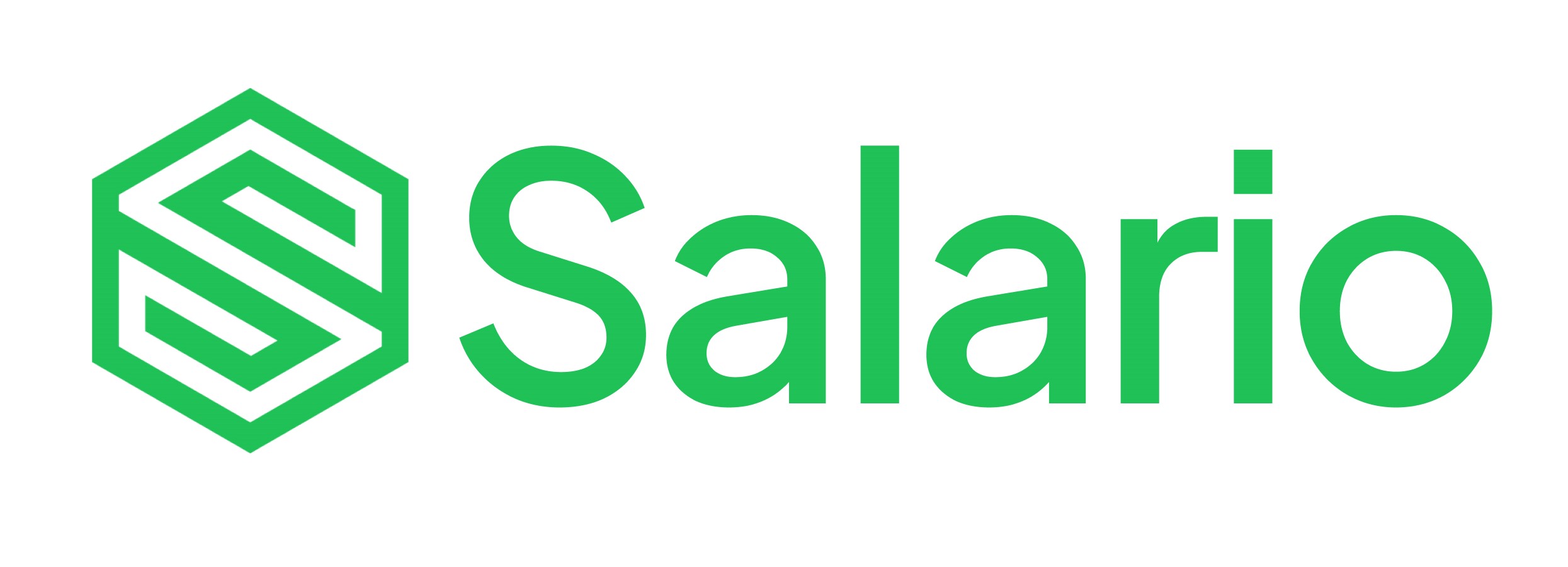
Payroll can feel overwhelming for business owners in Nigeria, especially when you’re juggling tight budgets and complex regulations. Imagine paying your employees on time, keeping up with tax laws, and doing it all for free. That’s the power of knowing how to run payroll for free in Nigeria. For startups and small teams, free payroll solutions are a life saver, considering the tight budgets of small business owners or startups.
How to run payroll for free in Nigeria is all about using the right tools and processes to pay employees accurately while following the law. Whether you’re a business owner or you run a tech startup, this guide will help you get started. And when you’re ready to take things to the next level, Salario offers a smart way to make payroll even easier with advanced features like automation and compliance support. Let’s dive in!
Understanding Payroll in Nigeria

Payroll is about paying your employees their salaries, including any allowances, while handling taxes and pensions correctly. In Nigeria, most businesses pay monthly, and you must follow rules like the Nigeria Data Protection Regulation (NDPR) to keep employee data safe and the Pay-As-You-Earn (PAYE) system for taxes. Doing payroll manually can be time-consuming and lead to mistakes, especially for small teams with no HR staff.
Free tools can help, but as your business grows, a platform like Salario can help save time and prevent errors with its advanced features like payroll automation.
Step-by-Step Guide to Running Payroll for Free in Nigeria
Step 1: Set Up Your Business for Compliance
To run payroll legally, your business needs to be registered with the right government bodies. Start by getting a Tax Identification Number (TIN) from the State Inland Revenue Service (SIRS) using their free e-Tax portal. This lets you manage PAYE taxes, which every employee must pay. Next, sign up with the Nigeria Social Insurance Trust Fund (NSITF) for the Employee Compensation Fund, which protects workers from workplace injuries.
If you have more than 5 employees and a turnover above ₦50 million, register with the Industrial Training Fund (ITF) for training contributions. These steps are free and can be done online. This step is crucial for how to run payroll for free in Nigeria, ensuring compliance from the start.
Salario Advantage: Salario automates compliance with individual SIRS, and NSITF, so you never miss a deadline. You can book a demo to see how it simplifies the process.
Step 2: Gather Employee Information
Collect key details from your employees: full names, bank account numbers, TINs, and employment contracts listing salaries and allowances like housing or transport. Use free tools like Google Forms to gather this information securely or Excel to organize it. Keep data safe to avoid trouble with NDPR, which protects employee privacy. Mistakes in data collection can delay payments, so double-check everything.
Salario Advantage: Salario’s secure onboarding portal makes collecting and storing employee data easy, reducing errors that free tools like spreadsheets might cause.
Step 3: Calculate Gross and Net Pay
Figure out each employee’s gross pay: their base salary plus any allowances, like transport or lunch. Then, deduct mandatory contributions: PAYE taxes (based on income), pension (8% from employees, 10% from you), and NSITF (1% from you). For example, for a ₦50,000 monthly salary, you’d deduct taxes, pension, and NSITF to find the net pay, which is the amount the employee takes home.
There are free online calculators that can help you get it right. In the quest of how to run payroll for free in Nigeria, this step is a must.
Salario Advantage: Salario automates these calculations, ensuring you follow Nigeria’s tax rules without spending hours on calculations.
Step 4: Process Payments
Pay employees using banks that offer free transfer services like mobile banks that do not charge fees for small transfers. Create payslips using free templates from Canva or Microsoft Word to show employees their salary breakdown. Payslips build trust and are required by law. Keep payment records for at least 6 years, as Nigerian rules demand.
Salario Advantage: Salario connects directly with Nigerian banks for fast payments and creates professional payslips instantly, making employees happy and saving you time.
Step 5: File Taxes and Reports
Knowing how to run free payroll in Nigeria is knowing that you have to Submit PAYE taxes to the State Internal Revenue Service (SIRS) by the 10th of the next month. File annual tax forms (Form H1) by January 31 using the SIRS e-filing portal. Send NSITF contributions by the 16th of the following month and ITF payments (if needed) by April 1.
Store records securely in free cloud tools like Google Drive to meet the 6-year rule. Missing deadlines can lead to fines, so stay organized.
Salario Advantage: Salario automates tax filings and securely stores records, so you avoid penalties. You can book a demo to see how it works.
Step 6: Review and Monitor
Check your payroll process regularly to catch mistakes, like incorrect deductions or missing filings. Run a test payroll using free templates to compare results and ensure accuracy. Use Google Sheets to track payroll patterns, like frequent overtime, to spot issues early. Staying on top of NDPR rules keeps employee data safe and avoids fines.
Salario Advantage: Salario’s analytics tools spot errors in real time, offering reliability that free tools can’t match.
Limitations of Free Payroll
Running payroll for free in Nigeria works well for small teams, but it has challenges. Calculating pay and taxes manually takes hours, especially as your business grows. Spreadsheets can lead to mistakes, like wrong tax amounts, which upset employees or trigger fines. Free tools like Google Drive do not have strong security, risking data breaches that NDPR penalizes heavily.
If you hire remote workers or expand to multiple states, free systems struggle to keep up. How to run payroll for free in Nigeria is great for startups, but these limitations can slow you down as your needs change.
How Salario Bridges the Gap

Imagine a tech startup using free payroll tools. They saved money but spent hours on calculations and missed a tax deadline, facing a ₦50,000 fine. After trying Salario’s advanced features, they automated tax filings, cut processing time in half, and scaled to 8 employees without stress. It’s not enough to know how to run payroll for free in Nigeria; it’s also about knowing what advanced features can make payroll easier and faster for you. Salario bridges the gap between free payroll and professional management with top-tier features like:
Smart Automation
Salario instantly calculates taxes, pensions, and allowances, ensuring compliance with various SIRS, NSITF, and ITF rules. No more manual math or missed deadlines, saving you time to focus on your business.
Bank Integrations
Salario connects directly with Nigerian banks for fast, secure salary payments, even for remote teams across multiple states, unlike free tools that require manual transfers.
Secure Employee Portal
Employees can access payslips, tax forms, and benefits securely online, boosting trust and transparency. This eliminates the need for manual payslip creation, a common hassle with free methods.
Employee Wallet
For employees without traditional bank accounts, Salario supports employee wallets, ensuring everyone gets paid on time, a key advantage in Nigeria’s diverse market.
Real-Time Analytics
Track payroll trends, like overtime costs, with easy-to-read dashboards, helping you plan budgets and make smart decisions without digging through spreadsheets.
Round-the-Clock Support
Salario’s dedicated team is available 24/7 to solve issues fast, unlike free tools that leave you on your own during payroll crises.
Budget-Friendly Plans
Salario offers affordable pricing that fits Nigerian startups and SMEs, with no hidden fees or extra charges. You only pay for what you need, making it a cost-effective step up from free methods.
Conclusion: Start Free, Scale Effortlessly with Salario
Mastering how to run payroll for free in Nigeria is straightforward with these steps: register your business, collect data, calculate pay, process payments, file taxes, and review. Free tools like Excel and SIRS portals can save small businesses money. As you grow, Salario’s advanced features, like automated tax filings, secure employee portals, mobile money payments, and analytics tools which make payroll effortless, saving time and ensuring compliance.
Don’t let payroll hold you back; you can start free and scale up with Salario seamlessly. Create a free account to automate your payroll process at zero cost.
